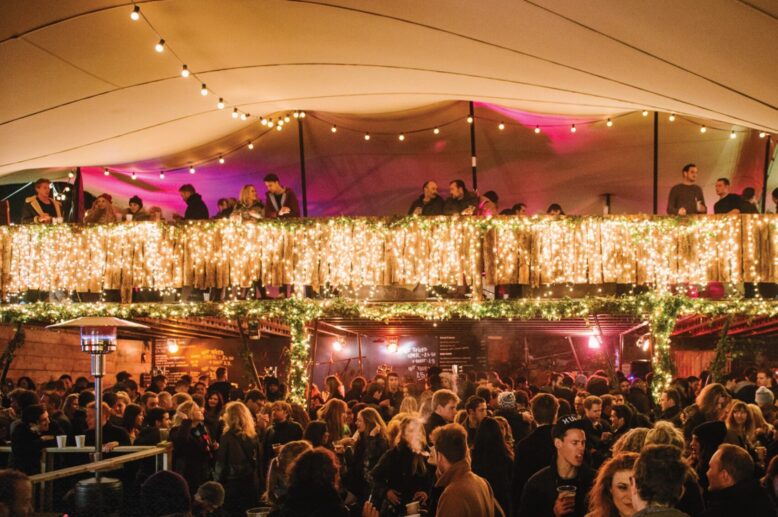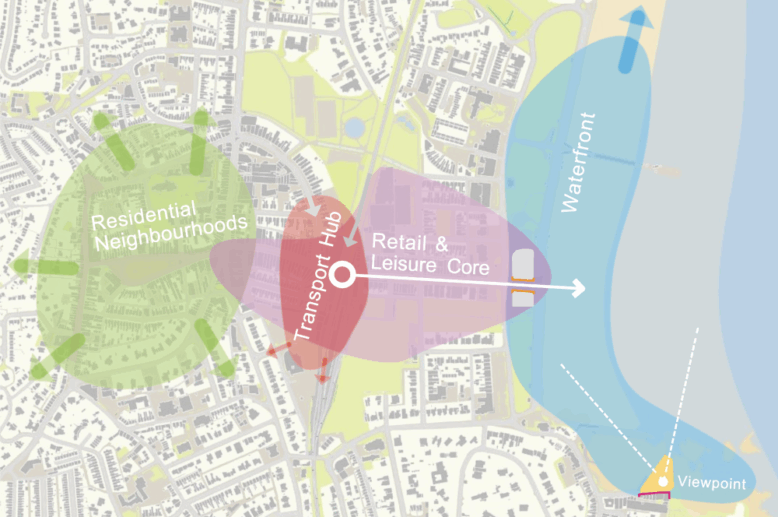Food halls have roots dating back over a century, now they’ve transformed into vibrant destinations. As tastes evolve and towns and cities look for innovative ways to activate obsolete spaces, food halls are going to play an even bigger role in shaping the future of dining, socialising and the way we use urban centres. But beware! Food halls won’t be successful with a cookie cutter approach. The delicate balance of ingredients to ensure optimum delivery factors in size, operator, concept, occupational structure, rent level and location.
The food hall concept we know today – think Time Out Markets or KERB’s Seven Dials Market in Covent Garden – really kicked off around 15 years ago. The modern version is characterised by variety and convenience set in a relaxed, informal environment.
I’ve been involved in the delivery of a number of food halls across the country from London to Liverpool over the last 10 years. It’s a relatively young sector and it’s still evolving.
I remember acting for Night Group, now established bar and music venue operators. In the early days, they would temporarily take over roof tops, car parks or development sites in east London and host a mix of vendors slinging high quality food on paper plates with scaffolding providing the frame for bars and kitchens. They were seasonal, outdoors with heating coming from wood fires in steel drums and the music was on loud!
The work I did with Night Group highlighted gaps in traditional landlord and tenant occupational structures. The operational and practical needs of a food hall require something more bespoke and collaborative to be adopted in order to get these spaces off the ground.
“Multi vendor sites such as food halls are complex but they bring a vibrancy and a community connection which is hard to match. Having an advisor who understands the challenges involved is critical to unlocking the potential of these spaces.” Lottie Campbell, Night Group
At the other end of the spectrum, I recently worked on behalf of Sheffield City Council to help bring Cambridge Street Collective into Heart of the City as an F&B anchor. A special 25,000 sq ft, purpose-built food hall in the centre of Sheffield which is operated by Blend. Blend is a five strong regional food hall specialist with big ambitions and an approach which is responsive to the environment and local catchment, they focus on authenticity which has contributed to the huge impact it’s had since opening CSC in May.
“Alex understands our DNA and our goal to create a community of talented food entrepreneurs. His input on the deal structure helped find the balance to make things happen” Matt Bigland, Blend
Food halls operate under various structures, each balancing risk and reward. A traditional lease shifts all risk and control to the operator, while management agreements suit riskier locations by splitting profits between landlord and operator, with the latter managing day-to-day operations for a fixed fee. The owner/operator model allows owners to retain full control and profits but carries higher risk, as success depends on internal expertise, as demonstrated by Barnsley’s Market Kitchen.
There’s no limit to the type of space a food hall can occupy. Organic evolution of buildings which were constructed 100+ years ago as public retail and produce markets provide real character. Good examples include Mercado Central in Cádiz, Grand Central Market in downtown L.A. and more recently Huddersfield’s planned repurposing of the former Queensgate Market.
We’ve seen former dept stores, car parks, industrial buildings, arches under railways, purpose built spaces and everything in between operated as food halls.
The type of space, the nature of the concept, the size – none of these elements determine whether a food hall is successful or not. I won’t be listing them here but we’re all aware of food halls which have failed.
One common theme for successful food halls is community engagement. Delivering a space which has inclusivity at its heart attracting a full cross section of society and appealing to an intergenerational visitor profile. This builds a connection across the local population and helps deliver activity throughout the week.
Clever interior design and an events programme to support fluctuations in footfall are also key to reaching the local community.
Food halls have evolved into hubs which help drive local economies by providing platforms for small businesses and entrepreneurs to thrive, allowing chefs to test new concepts and develop a loyal following without the financial burden of opening a standalone operation.
Success stories are everywhere. The likes of Patty & Bun, BAO and Pizza Pilgrims – all now well-established restaurant operators in their own right – started life as kitchens within food hall environments.
While working with Barnsley Metropolitan Borough Council, I relocated Dolly’s Desserts, once a fixture in the Market Kitchen Food Hall, to their flagship dessert parlour in The Glass Works. This helped them increase their capability to service their national online audience.
“It’s hard to take a business from a food hall kitchen to a permanent store. Alex understands the journey and helped make the expansion simple and smooth. Knowledgeable partners are so important when you’re trying to unlock these type of opportunities” – Janine Davies, Owner, Dolly’s Desserts.
Meandu reported that from June 2023 to February 2024, the number of operational food halls increased by 15% from 76 to 84. Notably this growth comes during a generally difficult period for the wider hospitality sector. This underlines their strength but while it’s been a period of sustained success and growth, they’re not a guaranteed solution for big empty spaces. It’s easy to look at their success and assume they’re failsafe options. This is not the case, the high-profile issues encountered by Market Halls in their initial expansion are testament to this.
The future of food halls is bright, but also complex. Getting the right operator, concept and the optimum occupational structure is the key to long term success.
Maximising the economic and community benefits food halls bring is not simple either. With the right expertise and understanding this sector can play a big role in urban regeneration, mixing community, culture, and culinary innovation to create vibrant, social hubs.



